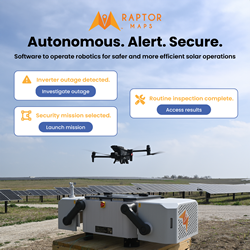A new PACT for creating jobs and saving the climate
A new online platform launched today by the World Future Council provides policymakers throughout the world with the right tools to unleash sustainable energy development. The new PACT website (www.onlinepact.org) embraces eight new policy recommendations on energy efficiency.
Hamburg/London, November, 11th 2009: A massive uptake of renewable energy and the application of efficient technologies is the key to fighting climate change, creating jobs and building future economies. A new online platform launched today by the World Future Council provides policymakers throughout the world with the right tools to unleash sustainable energy development in their country. A catalogue of policies and regulations to accelerate the deployment of renewable energy and to reduce the overall energy demand now helps Parliamentarians to create a better policy framework. The PACT website www.onlinepact.org that was originally launched in November 2007 has been completely rebuilt and embraces eight new policy recommendations on energy efficiency.
"It is eye-opening to realise that replacing a single 100 Watt traditional light bulb with an energy saving model results in a saving of C02 emissions that equals driving a fuel efficient car from India to Germany. If all light bulbs worldwide were replaced global CO2 emissions would be reduced by 2%. This equals more than 50% of global aviation emissions per annum", says Dr. Axel Bree, Policy Officer and chief editor of the PACT website.
Bree: "Our new website has been explicitly designed for policymakers. We want to sensitise them to the urgent need to develop sound renewable energy policies and increase energy efficiency but also emphasise that, by promoting the renewable energy transition, thousands of jobs can be created and money can be made. The unique aspect is that we don't leave it at that but combine this information with precise policy recommendations and suggestions of how to implement them".
The PACT website is divided into a section that provides �a one step clearing house' for designing �Feed-in Tariffs' as best policies to accelerate the development of renewable energy and into a series of eight sound policy recommendations to reduce the overall energy demand. There are policy examples for the use of cooking stoves, which do not emit CO2 or other hazardous fumes, but produce biochar, an organic, carbon-storing fertilizer. Smart electricity meters inform consumers about how they could save up to 10% of their electricity costs by running the washing machine at off-peak times or turning off appliances on stand-by. Congestion charges can mitigate traffic problems and curb gasoline consumption in large cities while taking in funds for public transport and cycling lanes.
All policy recommendations listed on the PACT website are the result of in-depth research by the WFC. They meet the WFC Future Justice criteria that are designed to thoroughly check policies for unintended negative consequences. Case studies prove that the recommended
policies can work and have worked successfully in the past. The website is complemented by a new booklet that can be downloaded at onlinepact.org/1552.html or ordered from the WFC.
World Future Council:
The World Future Council brings the interests of future generations to the centre of policy making. Its up to 50 eminent members from around the globe have already successfully promoted change. The Council addresses challenges to our common future and provides decision-makers with effective policy solutions. In-depth research underpins advocacy work for international agreements, regional policy frameworks and national lawmaking and thus produces practical and tangible results. The World Future Council Foundation is registered in Hamburg.
Media contact:
Anne Reis
Media & Communications Officer
Phone: +49 (0)40 30 70 914-16
Email: anne.reis@worldfuturecouncil.org
http://www.worldfuturecouncil.org
Featured Product

